Discover Tech Tomorrow
Tech Tomorrow

Tech Tomorrow
Author: Zühlke
Subscribed: 21,547Played: 63,101Subscribe
Share
© Zühlke 2025
Description
Tech Tomorrow is your front-row seat to the conversations redefining the future. Each episode explores one big question about data, AI, or emerging tech, giving leaders clear, focused answers they can trust. If you're navigating complex innovation, from AI-augmented delivery to sustainability, this show helps you cut through the noise, connect cross-disciplinary trends, and lead with confidence in a rapidly evolving landscape.
Previously known as Data Today, this podcast has examined how out-of-the-box thinking around data can be used for good in our world. Now, Tech Tomorrow expands its scope, diving into topics like agentic systems, cybersecurity consulting, and AI in product development.
Host David Elliman is Chief of Software Engineering at Zühlke. With 40 years of experience in technology and innovation, David is a global leader and advisor. Specialising in building enterprise-scale solutions and adopting emerging technologies such as AI, IoT, blockchain, and cloud computing, David offers technical consulting worldwide.
About Zühlke
Zühlke is a global transformation partner, with engineering and innovation in our DNA. We're trusted to help clients envision and build their businesses for the future – to run smarter today while adapting for tomorrow’s markets, customers, and communities.
Our multidisciplinary teams specialise in tech strategy and business innovation, digital solutions and applications, and device and systems engineering. We excel in complex, regulated spaces including health and finance, connecting strategy, tech implementation, and operational services to help clients become more effective, resilient businesses.
Previously known as Data Today, this podcast has examined how out-of-the-box thinking around data can be used for good in our world. Now, Tech Tomorrow expands its scope, diving into topics like agentic systems, cybersecurity consulting, and AI in product development.
Host David Elliman is Chief of Software Engineering at Zühlke. With 40 years of experience in technology and innovation, David is a global leader and advisor. Specialising in building enterprise-scale solutions and adopting emerging technologies such as AI, IoT, blockchain, and cloud computing, David offers technical consulting worldwide.
About Zühlke
Zühlke is a global transformation partner, with engineering and innovation in our DNA. We're trusted to help clients envision and build their businesses for the future – to run smarter today while adapting for tomorrow’s markets, customers, and communities.
Our multidisciplinary teams specialise in tech strategy and business innovation, digital solutions and applications, and device and systems engineering. We excel in complex, regulated spaces including health and finance, connecting strategy, tech implementation, and operational services to help clients become more effective, resilient businesses.
25 Episodes
Reverse
Quantum computing may feel like a distant part of the future, but many experts believe its widespread adoption could arrive sooner than expected. And with it comes a profound challenge: today’s encryption, which protects global cybersecurity, banking, digital identity, and confidential communication, may no longer be secure.So what happens when quantum computers can break the cryptography that protects our most sensitive information?In this special Alice in Wonderland-themed episode of Tech Tomorrow, David Elliman speaks with Dr. Sarah McCarthy, Quantum Readiness Programme Lead at Citi, to explore the looming post-quantum era. Together, they discuss what executives, security leaders, and organisations need to understand about quantum risk, how to prepare now, and why waiting may already be too late.Through playful Wonderland metaphors inspired by Lewis Carroll, including the Red Queen’s race and the Garden of Talking Flowers, David and Sarah explain complex security concepts with clarity and imagination. They outline what quantum computing really is, how modern cryptography works, why cryptographic agility matters, and what could happen if organisations fail to adapt in time. The conversation emphasises that leaders must first understand their organisation’s current cryptographic estate, then develop a strategy that allows their systems to adapt and evolve, and finally begin taking practical steps today to ensure readiness well before ‘Q-Day’ arrives.Episode Highlights00:34 – Introducing the Wonderland theme and framing the topic.02:13 – What is quantum cryptography, and why does it matter?03:5 – How modern cryptography protects everyday digital life.06:16 – David Through the Looking Glass: Understanding the Red Queen’s Race.07:23 – Why security strategies must evolve continuously.09:24 – Cryptographic agility and how leaders can practice it.11:22 – The urgency behind quantum readiness.15:49 – David Through the Looking Glass: The Garden of Talking Flowers and digital estate management.16:32 – Practical, actionable steps executives can take today.19:59 – What is Q-Day, and when might it arrive?22:30 – David Through the Looking Glass: The White Rabbit of quantum security.23:03 – Which companies are making progress in quantum-safe security?24:38 – Can our secrets survive the quantum leap?About Zühlke:Zühlke is a global transformation partner, with engineering and innovation at its core. We help clients envision and build their businesses for the future – running smarter today while adapting for tomorrow’s markets, customers, and communities.Our multidisciplinary teams specialise in technology strategy and business innovation, digital solutions and applications, and device and systems engineering. We thrive in complex, regulated sectors such as healthcare and finance, connecting strategy, implementation, and operations to help clients build more effective and resilient businesses.Links:Zühlke WebsiteZühlke on LinkedInDavid Elliman on LinkedInDr. Sarah McCarthy WebsiteDr. Sarah McCarthy on LinkedIn
As artificial intelligence continues to redefine industries, the question isn’t just what we can build, but what we should. In a world of accelerating automation and algorithmic decision-making, can leaders harness innovation without losing public trust?In this episode of Tech Tomorrow, David Elliman speaks with Lord Clement-Jones, Liberal Democrat peer, former Chair of the House of Lords AI Select Committee, and co-chair of the All-Party Parliamentary Group on AI. Together, they explore how business leaders can align technological progress with human values and why doing so is not just ethical but essential for sustainable innovation.They unpack what ‘responsible AI’ really means in practice: from explainability and human oversight to data quality, fairness, and transparent governance. Lord Clement-Jones argues that regulation, far from stifling innovation, can actually enable it by creating the trust, certainty, and accountability businesses need to adopt AI confidently.The discussion also explores the roles of boards and executive committees, including why AI literacy is now a core competency, how to establish effective oversight mechanisms, and what it means to integrate ethics into AI design rather than retrofit it later. Drawing on his book Living with the Algorithm: Servant or Master?, Lord Clement-Jones reflects on how technology should serve humanity, not the other way around, and why progress must be measured by its benefits to people, not just profit.Episode Highlights:01:39 – Introducing Lord Clement-Jones.03:45 – Why Lord Clement-Jones decided to write Living with the Algorithm: Servant or Master.06:03 – What is the biggest risk that boards face if they don’t take into account societal responsibility in relation to AI?07:20 – David’s thoughts: Steps boards and executives can take to ensure they implement useful and trusted AI tools.08:39 – Defining ethical frameworks in AI.10:21 – What sort of skill sets do boards need to help them work effectively with AI?11:31 – What can boards and executive committees do to ensure they are implementing AI tools ethically?13:25 – The problem with black-box solutions.15:56 – David’s thoughts: The impossibility of retrofitting responsibility into AI systems.17:39 – Changing the culture around AI implementation.20:06 – Why Lord Clement-Jones included the subtitle Servant or Master in his book title.23:14 – David’s thoughts: The three pillars of responsible AI.25:26 – The current political landscape and how AI regulation fits into it.27:16 – Can executives balance AI innovation with societal responsibility?About Zühlke:Zühlke is a global transformation partner, with engineering and innovation at its core. We help clients envision and build their businesses for the future – running smarter today while adapting for tomorrow’s markets, customers, and communities.Our multidisciplinary teams specialise in technology strategy and business innovation, digital solutions and applications, and device and systems engineering. We thrive in complex, regulated sectors such as healthcare and finance, connecting strategy, implementation, and operations to help clients build more effective and resilient businesses.Links:Zühlke WebsiteZühlke on LinkedInDavid Elliman on LinkedInLord Clement-Jones WebsiteLiving with the Algorithm: Servant or Master? AI Governance and Policy for the Future
AI and digital twins are redrawing the boundaries of drug discovery. Once defined by lab benches, animal studies, and years of trial and error, the field is now embracing virtual methodologies that promise faster, safer, and more precise innovation. But could these technologies ever make animal testing obsolete?In this episode of Tech Tomorrow, David Elliman speaks with Professor Julie Frearson, SVP and Chief Scientific Officer at Charles River Laboratories, about how artificial intelligence is transforming early-stage drug discovery. Julie explains how AI is already accelerating small-molecule design and enabling the use of virtual control animals, reducing the need for live testing without compromising scientific integrity.They also unpack the growing challenges of explainability, bias, and regulation in AI-driven science. From ensuring transparency and accountability in complex models to understanding how regulators like the FDA are beginning to accept hybrid data sets that combine in vivo results with AI predictions, the discussion balances optimism with realism in a rapidly evolving field.Ultimately, Professor Julie and David agree that while AI is reshaping discovery, humans must remain firmly in the loop. For now, it is the only way to ensure that innovation remains both ethical, trustworthy, and safe.Episode Highlights:01:31 – Areas of drug discovery already transformed by AI and digital twins.03:25 – Digital twins in animal testing and the creation of “virtual animals.”05:50 – David’s thoughts: What executives often get wrong about digital twins.07:30 – How digital twins accurately recreate parts of animals.10:11 – How regulation currently views AI models in drug discovery.13:30 – The timeline for regulators to become more comfortable with hybrid data sets.14:37 – David’s thoughts: How ‘black box’ AI processes create challenges, and how to address them.16:31 – The role of humans in the drug discovery loop.17:37 – Will technology outpace regulation?20:34 – Could AI and digital twins make animal testing in drug discovery obsolete?About Zühlke:Zühlke is a global transformation partner, with engineering and innovation at its core. We help clients envision and build their businesses for the future – running smarter today while adapting for tomorrow’s markets, customers, and communities.Our multidisciplinary teams specialise in technology strategy and business innovation, digital solutions and applications, and device and systems engineering. We thrive in complex, regulated sectors such as healthcare and finance, connecting strategy, implementation, and operations to help clients build more effective and resilient businesses.Links:Zühlke WebsiteZühlke on LinkedInDavid Elliman on LinkedInProfessor Julie Frearson on LinkedInCharles River Laboratories Website
AI is transforming biotechnology from the inside out. What was once a world of petri dishes and pipettes is now increasingly powered by algorithms, models, and digital twins. But as machine learning accelerates drug discovery and reshapes clinical trials, how far can we go before biology itself becomes the follower, not the leader?In this episode of Tech Tomorrow, David Elliman speaks with Bibi Ephraim, Head of Digital Sciences at Genentech, about how artificial intelligence is redefining the biotech landscape. They explore how data-driven approaches are rapidly compressing timelines in drug discovery, enabling precision medicine, and even simulating virtual clinical trials.They also tackle the cultural and organisational transformations needed to make digital biotech work; from breaking down data silos and fostering collaboration across competitors, to treating data as a product and investing in strong governance. Drawing parallels with digital transformation in other industries, they ask what it will take for biotech to move from project-based to product-based innovation, and why pre-competitive collaboration could unlock the next generation of cures.Episode Highlights:01:40 – What do AI, data science, and digital governance in the biotech landscape look like today?03:06 – Biotech and the data foundations needed for transformation.04:52 – Examples of successful data-driven approaches in biotech.08:10 – Will parts of the medical process be completely handed over to AI?09:39 – David’s thoughts: The importance of sustained, iterative innovation.11:49 – The biggest mistake Bibi sees executives make in relation to data.13:08 – The huge issue of low-quality data.14:59 – Data sharing is critical in this field.19:03 – David’s thoughts: How pre-competitive collaboration benefits everyone.21:17 – Is biotech reaching a standardisation tipping point?24:11 – Can biotech scale digitally and effectively?26:30 – Will the next biotech breakthrough be digital before it’s biological?28:33 – If digitalisation expands, will researchers miss the “happy accidents” of drug discovery?About Zühlke:Zühlke is a global transformation partner, with engineering and innovation at its core. We help clients envision and build their businesses for the future – running smarter today while adapting for tomorrow’s markets, customers, and communities.Our multidisciplinary teams specialise in technology strategy and business innovation, digital solutions and applications, and device and systems engineering. We thrive in complex, regulated sectors such as healthcare and finance, connecting strategy, implementation, and operations to help clients build more effective and resilient businesses.Links:Zühlke WebsiteZühlke on LinkedInDavid Elliman on LinkedInBibi Ephraim on LinkedInGenentech Website
The UK’s 2025 Data Act marks a turning point in how data is shared and governed. Just as common standards in telecoms and banking unlocked innovation, trusted data could be the key to credible climate action. But with carbon reporting fragmented and confidence in the numbers low, can open data really help us reach net zero?In this episode of Tech Tomorrow, David Elliman speaks with Gavin Starks, founder of Icebreaker One, about why net zero is impossible without shared, reliable data. They draw lessons from open banking—how standards, governance, and collaboration turned a technical challenge into a multi-billion-pound ecosystem—and ask what it would take to do the same for climate.They also spotlight Icebreaker One’s project Perseus, which is building the data infrastructure to automate SME sustainability reporting and connect emissions data directly with green finance. By cutting friction for small businesses and giving banks numbers they can trust, Perseus shows how shared data can turn compliance into opportunity.Episode Highlights:01:00 – An introduction to Gavin.01:25 – When we talk about open data in the context of climate action, what do we actually mean?04:17 – The parallels between open banking and net zero.06:25 – David’s thoughts: Finding clarity in carbon reporting.07:47 – The current crisis in carbon reporting.11:05 – When it comes to getting this right, 90% of the work is governance.13:37 – David’s thoughts: The power of narrow use cases.15:02 – Why open banking was a success.16:54 – When it comes to sustainability, compliance should really be the floor and opportunity should be the ceiling.19:04 – David’s thoughts: The 2025 UK Data Act.20:43 – Why 2025 is an inflection point for data in the UK.22:57 – What does Gavin think will happen next?25:53 – Is net zero even possible without open data?About Zühlke:Zühlke is a global transformation partner, with engineering and innovation at its core. We help clients envision and build their businesses for the future – running smarter today while adapting for tomorrow’s markets, customers, and communities.Our multidisciplinary teams specialise in technology strategy and business innovation, digital solutions and applications, and device and systems engineering. We thrive in complex, regulated sectors such as healthcare and finance, connecting strategy, implementation, and operations to help clients build more effective and resilient businesses.Links:Zühlke WebsiteZühlke on LinkedInDavid Elliman on LinkedInGavin Starks on LinkedInIcebreaker One WebsitePersus Website
According to the United Nations, the world’s population is projected to exceed 9.5 billion by 2050, placing unprecedented strain on our food systems. Climate change, land scarcity, and rising demand for protein mean that traditional agriculture alone may no longer be enough. Could cultivated meat and other food technologies provide the answer?In this episode of Tech Tomorrow, David Elliman speaks with Illtud Dunsford, CEO and co-founder of Cellular Agriculture Ltd, about the promise and limitations of lab-grown foods. Together, they explore whether technology alone can solve the global food crisis or whether the deeper challenge lies in human choices and culture.They also discuss the parallels between scaling in biotech and software engineering. How ambitious visions must be broken into achievable steps, the risks of hype cycles, and why collaboration across disciplines is essential. Just as DevOps reshaped software delivery, cultivated foods may depend on breaking down silos.Episode Highlights:01:49 – What is cultivated meat?02:46 – How cultivated meat may help optimise and reduce waste.04:03 – How the extremities of technology and ideas help us push forward.05:02 – David’s thoughts: What does pushing the boundaries look like in software engineering?06:21 – The story of Cellular Agriculture Ltd and how their technology works.09:53 – Where is the cultivated meat industry today?11:45 – David’s thoughts: Are long R&D cycles necessary for software engineers?12:31 – What challenges are cultivated foods trying to tackle?16:29 – What’s stopping this technology from expanding?18:35 – How long is it going to take for this technology to reach an inflection point?20:13 – David’s thoughts: Why cross-collaboration is so important in software engineering.22:34 – What does the future of cultivated food look like?25:03 – What could we miss about this field if we only concentrate on the technology?27:58 – Is the global food crisis a problem that only tech can solve?About Zühlke:Zühlke is a global transformation partner, with engineering and innovation at its core. We help clients envision and build their businesses for the future – running smarter today while adapting for tomorrow’s markets, customers, and communities.Our multidisciplinary teams specialise in technology strategy and business innovation, digital solutions and applications, and device and systems engineering. We thrive in complex, regulated sectors such as healthcare and finance, connecting strategy, implementation, and operations to help clients build more effective and resilient businesses.Links:Zühlke WebsiteZühlke on LinkedInDavid Elliman on LinkedInIlltud Dunsford on LinkedInCellular Agriculture Ltd Website
By 2026, Europol estimates that more than 90% of online content could be AI-generated – from music and written work to imagery and beyond. But what does this shift mean for creativity, originality, and the role of human value in the process?In this episode of Tech Tomorrow, David Elliman speaks with Anjana Susarla, Professor of Responsible AI at the Eli Broad College of Business, Michigan State University. Together, they explore whether AI can truly be trusted as a creative collaborator in both work and wider society.Their conversation looks at how the traditional process of drafting and redrafting may change when AI enters the picture, and the rise of so-called ‘AI slop’ – mass-produced, low-quality outputs – in areas such as writing, design, and programming. They also consider whether agentic AI might one day predict our preferences more accurately than we can ourselves, and reflect on the persistent hype and ‘magic’ surrounding new AI tools, asking what this means for the future of creativity, business, and work.Episode Highlights:00:47 – What happens to the iterative creative process when AI is introduced?02:59 – The polarising reactions to AI tools.04:03 – Do we even like the creative outputs of AI?05:16 – David’s thoughts: Can we put a qualitative value on creativity?06:31 – What was the AI-generated podcast based on Anjana’s paper like?10:28 – The homogenising effect of AI.11:45 – Feedback loops and the halo effect.13:04 – David’s thoughts: AI prediction models.16:28 – Human oversight in AI creativity.19:08 – Maintaining the quality of AI-generated outputs.21:05 – David’s thoughts: What happens when AI tools enter the workplace?23:08 – AI creativity, brain drain, and deskilling24:58 – Should we trust AI as a creative collaborator?About Zühlke:Zühlke is a global transformation partner, with engineering and innovation at its core. We help clients envision and build their businesses for the future – running smarter today while adapting for tomorrow’s markets, customers, and communities.Our multidisciplinary teams specialise in technology strategy and business innovation, digital solutions and applications, and device and systems engineering. We thrive in complex, regulated sectors such as healthcare and finance, connecting strategy, implementation, and operations to help clients build more effective and resilient businesses.Links:Zühlke WebsiteZühlke on LinkedInDavid Elliman on LinkedInProf. Anjana Susarla on LinkedIn
Tech Tomorrow is your front-row seat to the conversations redefining the future.Each episode explores a big, thought-provoking question, from how we collaborate with machines to the possibilities intelligent systems could unlock in the future. Created for leaders steering innovation through complexity, the show cuts through the noise, connecting cross-disciplinary trends so you can make confident decisions in a rapidly changing world.Your host, David Elliman, Chief of Software Engineering at Zühlke, draws on four decades of global experience in technology and innovation. An expert in enterprise-scale solutions and emerging technologies, including AI, IoT, blockchain, and cloud computing, David brings clarity and insight to even the most complex topics.Tech Tomorrow, from Zühlke – coming soon, wherever you get your podcasts.About Zühlke:Zühlke is a global transformation partner, with engineering and innovation in our DNA. We're trusted to help clients envision and build their businesses for the future – to run smarter today while adapting for tomorrow’s markets, customers, and communities.Our multidisciplinary teams specialise in tech strategy and business innovation, digital solutions and applications, and device and systems engineering. We excel in complex, regulated spaces, including health and finance, connecting strategy, tech implementation, and operational services to help clients become more effective, resilient businesses.Links:Zühlke WebsiteZühlke on LinkedInDavid Elliman on LinkedIn
Neural networks are the backbone of many AI and machine learning systems. But how can they be applied to real-world scenarios?Today’s guest is Damian Borth, Professor of Artificial Intelligence & Machine Learning at the University of St. Gallen. He is also the director of the Computer Science Institute at St. Gallen.His work on neural networks has taken him to several subject areas including climate change, financial fraud detection, and text-to-speech. He is also the recipient of a Google Research Scholar Award.We discuss what neural networks are, what they do, and how their application could help us save the world.00:00 - Intro02:02 - Damian’s background03:01 - What is a neural network?09:21 - Neural networks and climate change12:44 - Neural networks and text-to-speech14:56 - Bias in AI training data12:44 - Academia and the real world27:12 - Dan's final thoughtsLINKS:Damian Borth: https://www.linkedin.com/in/damianborth/?originalSubdomain=chDan Klein: https://uk.linkedin.com/in/dplkleinZühlke: https://www.zuehlke.com/enWelcome to Data Today, a podcast from Zühlke.We're living in a world of opportunities. But to fully realise them, we have to reshape the way we innovate.We need to stop siloing data, ring-fencing knowledge and looking at traditional value chains. And that's what this podcast is about. Every two weeks, we’re taking a look at data outside the box to see how amazing individuals from disparate fields and industries are transforming the way they work with data, the challenges they are overcoming, and what we can all learn from them.Zühlke is a global innovation service provider. We envisage ideas and create new business models for our clients by developing services and products based on new technologies – from the initial vision through development to deployment, production and operation.
According to Alzheimer's Disease International, the number of people around the world with the condition will reach 78 million in 2030, and 139 million in 2050. As of 2024, there is no known cure for Alzheimer's, dementia, or similar degenerative brain conditions. So, how are those testing for these diseases using data and technology to help improve health outcomes?Today’s guest is Rhoda Au, Professor of Anatomy & Neurobiology, Neurology, and Epidemiology at Boston University, and Director of Neuropsychology at the Framingham Heart Study. She’s also the Director of Global Cohort Development at the Davos Alzheimer's Collaborative.We discuss Rhoda’s experience of paper-and-pen Alzheimer's testing in the early 90s, her switch to voice capture in 2005, and her thoughts about how medical data should be shared. 00:00 - Intro02:02 - The pen-and-paper days of Altizmer’s testing12:34 - The ethics of voice capture20:20 - Why we need to open up health data to the community26:07 - Dan's final thoughtsLINKS:Rhoda Au: https://www.linkedin.com/in/rhoda-au-1687277/Boston University School of Medicine & Public Health: https://www.bu.edu/sph/Framingham Heart Study: https://www.framinghamheartstudy.org/Alzheimer's Disease International: https://www.alzint.org/Alzheimer's Disease Data Initiative: https://www.alzheimersdata.org/Dan Klein: https://uk.linkedin.com/in/dplkleinZühlke: https://www.zuehlke.com/enWelcome to Data Today, a podcast from Zühlke.We're living in a world of opportunities. But to fully realise them, we have to reshape the way we innovate.We need to stop siloing data, ring-fencing knowledge and looking at traditional value chains. And that's what this podcast is about. Every two weeks, we’re taking a look at data outside the box to see how amazing individuals from disparate fields and industries are transforming the way they work with data, the challenges they are overcoming, and what we can all learn from them.Zühlke is a global innovation service provider. We envisage ideas and create new business models for our clients by developing services and products based on new technologies – from the initial vision through development to deployment, production and operation.
We don’t often think about what's going on beneath the surface of our cities and towns. But how could more understanding of this underground world help deliver better public services and tackle environmental impact?Today’s guest is Holger Kessler, a renowned geoscientist who has racked up an astonishing 25 years at the British Geological Survey. In early 2024, he started a new role at AtkinsRéalis but previously worked at the Government Office for Science as the Science Lead of the Future of the Subsurface Foresight Programme.We discuss the siloed nature of data underground, the benefits of digital twins, and why it's so important to use the utilities we have underground. 00:00 - Intro12:24 - Why is subsurface data so siloed?23:05 - Holger’s work in the London subterranean28:15 - Dan's final thoughtsLINKS:Holger Kessler: https://www.linkedin.com/in/holgerkessler/British Geological Survey: https://www.bgs.ac.uk/Dan Klein: https://uk.linkedin.com/in/dplkleinZühlke: https://www.zuehlke.com/enWelcome to Data Today, a podcast from Zühlke.We're living in a world of opportunities. But to fully realise them, we have to reshape the way we innovate.We need to stop siloing data, ring-fencing knowledge and looking at traditional value chains. And that's what this podcast is about. Every two weeks, we’re taking a look at data outside the box to see how amazing individuals from disparate fields and industries are transforming the way they work with data, the challenges they are overcoming, and what we can all learn from them.Zühlke is a global innovation service provider. We envisage ideas and create new business models for our clients by developing services and products based on new technologies – from the initial vision through development to deployment, production, and operation.
Public services and higher education facilities are under enormous pressure to keep track of their funds. But what if they were able to utilise some of that money, and put it back into the hands of the communities they serve?Today’s guest is Peter Forsgren, co-founder and COO of three+one, an organisation that assists clients across the United States in identifying opportunities to increase their revenue.Peter has worked in public sector finance for a long time but also serves on his local school board. We discuss Peter’s first role out of college with the Oneida Indian Nation, break down just how much financial data is required to optimise funds and examine a few case studies that show the power of money saved.00:00 - Intro02:30 - Peter’s experience with the Oneida Indian Nation10:53 - What does scalability look like for three+one?18:33 - The plan for national domination27:34 - Dan's final thoughtsLINKS:Peter Forsgren: https://www.linkedin.com/in/peterdforsgren/three+one: https://threeplusone.us/Oneida Indian Nation: https://www.oneidaindiannation.com/Dan Klein: https://uk.linkedin.com/in/dplkleinZühlke: https://www.zuehlke.com/enWelcome to Data Today, a podcast from Zühlke.We're living in a world of opportunities. But to fully realise them, we have to reshape the way we innovate.We need to stop siloing data, ring-fencing knowledge, and looking at traditional value chains. And that's what this podcast is about. Every two weeks, we’re taking a look at data outside the box to see how amazing individuals from disparate fields and industries are transforming the way they work with data, the challenges they are overcoming, and what we can all learn from them.Zühlke is a global innovation service provider. We envisage ideas and create new business models for our clients by developing services and products based on new technologies – from the initial vision through development to deployment, production, and operation.
The UK’s public sector uses vast quantities of data to keep its vital services running. But what's the best way to communicate with the public about these services?Today’s guest is Giuseppe Sollazzo, who currently heads up data products and services at the Department of Work and Pensions. He’s spent his entire career at the heart of the public sector. Giuseppe initially aspired to be an academic, but one failed Ph.D. later, he realised he needed to be more agile in his career trajectory. This led him into the NHS, the Department for Transport, and placed him squarely at the nexus of how we communicate data across society. Giuseppe and his team also pen the famous Quantum of Sollazzo newsletter, which has become a staple in the open data community.We discuss communicating data to citizens, the role of AI in the public sector, and the UK’s digital skills gap.00:00 - Intro02:46 - Legacy systems, public discourse, and information gathering at DWP06:37 - The role of AI in the public sector17:36 - The digital skills gap in the public sector30:10 - Dan's final thoughtsLINKS:Giuseppe Sollazzo: https://www.linkedin.com/in/giuseppesollazzoThe Quantum of Sollazzo: https://puntofisso.net/newsletter/Dan Klein: https://uk.linkedin.com/in/dplkleinZühlke: https://www.zuehlke.com/enWelcome to Data Today, a podcast from Zühlke.We're living in a world of opportunities. But to fully realise them, we have to reshape the way we innovate.We need to stop siloing data, ring-fencing knowledge and looking at traditional value chains. And that's what this podcast is about. Every two weeks, we’re taking a look at data outside the box to see how amazing individuals from disparate fields and industries are transforming the way they work with data, the challenges they are overcoming, and what we can all learn from them.Zühlke is a global innovation service provider. We envisage ideas and create new business models for our clients by developing services and products based on new technologies – from the initial vision through development to deployment, production, and operation.
It's been just over two years since Russia's full-scale invasion of Ukraine. How has disinformation played a part in the conflict, and what has been done to help combat it?Today's guest is Olga Tokariuk, a Chatham House Fellow and journalist who specialises in research around disinformation. She has spoken widely about Russia's use of disinformation in the war and what it means for the public's wider trust in the media.We discuss the four ways that technology and AI are being used in Ukraine, how to debunk and tackle disinformation in wartime, and how the public has been galvanised to think critically about the media they're consuming.00:00 - Intro01:54 - The four ways technology and AI are used on the battlefield08:19 - What does disinformation look like in this conflict?16:44 - The global decline of trust in the media21:55 - How did the evolution of the DIA app help galvanise the public in Ukraine?19:18 - Dan's final thoughtsLINKS:Olga Tokariuk: https://www.linkedin.com/in/olga-tokariuk/Chatham House: https://www.chathamhouse.org/Dan Klein: https://uk.linkedin.com/in/dplkleinZühlke: https://www.zuehlke.com/enWelcome to Data Today, a podcast from Zühlke. We're living in a world of opportunities. But to fully realise them, we have to reshape the way we innovate. We need to stop siloing data, ring-fencing knowledge, and looking at traditional value chains. And that's what this podcast is about. Every two weeks, we're taking a look at data outside the box to see how amazing individuals from disparate fields and industries are transforming the way they work with data, the challenges they are overcoming, and what we can all learn from them.Zühlke is a global innovation service provider. We envisage ideas and create new business models for our clients by developing services and products based on new technologies – from the initial vision through development to deployment, production, and operation.
We can use archives to unlock our past. But how can these vast analogue data sets utilise technology and still retain their value? Today’s guest is John Sheridan, Digital Director at The National Archives. In his role, John looks after all things digital. He shapes the strategy and direction of its numerous digital services including the vast and extensive National Archive website.We discuss the power of being able to easily access archival material, the increasing quality of document digitisation, and why archives are critical to the retention of primary sources.00:00 - Intro01:48 - What are the Archives up to right now?07:31 - Why the Archives are important in a wider cultural context17:35 - How archives save the world23:00 - What challenges does new technology present?26:18 - Dan's final thoughtsLINKSJohn Sheridan: https://www.linkedin.com/in/johnlsheridan/?originalSubdomain=ukThe National Archives: https://www.nationalarchives.gov.uk/Dan Klein: https://uk.linkedin.com/in/dplkleinZühlke: https://www.zuehlke.com/enWelcome to Data Today, a podcast from Zühlke.We're living in a world of opportunities. But to fully realise them, we have to reshape the way we innovate.We need to stop siloing data, ring-fencing knowledge and looking at traditional value chains. And that's what this podcast is about. Every two weeks, we’re taking a look at data outside the box to see how amazing individuals from disparate fields and industries are transforming the way they work with data, the challenges they are overcoming, and what we can all learn from them.Zühlke is a global innovation service provider. We envisage ideas and create new business models for our clients by developing services and products based on new technologies – from the initial vision through development to deployment, production and operation.
Nuclear weapons still loom large on the world stage. So why has the number of nuclear tests dropped so dramatically?Today’s guest is Megan Slinkard, Chief of the Software Applications Section in the International Data Centre at the Comprehensive Nuclear-Test-Ban Treaty Organization (CTBTO). Based in Vienna, Megan has worked in nuclear explosion monitoring for more than 10 years and is really at the coal face of the monitoring work that the organisation does.We discuss Megan’s path to nuclear testing, how the CBTO has helped to create a culture where nuclear testing is rare, and how monitoring nuclear tests has helped bolster the CTBT (Comprehensive Nuclear-Test-Ban Treaty).00:00 - Intro02:41 - Megan’s origin story13:05 - What does CTBTO do when they detect an unusual event?23:00 - How monitoring and testing can add robustness to a treaty30:01 - Dan's final thoughtsLINKS:Megan Slinkard: https://www.linkedin.com/in/megan-slinkard-4905b2167/CTBTO: https://www.ctbto.org/Dan Klein: https://uk.linkedin.com/in/dplkleinZühlke: https://www.zuehlke.com/enWelcome to Data Today, a podcast from Zühlke.We're living in a world of opportunities. But to fully realize them, we have to reshape the way we innovate.We need to stop siloing data, ring-fencing knowledge and looking at traditional value chains. And that's what this podcast is about. Every two weeks, we’re taking a look at data outside the box to see how amazing individuals from disparate fields and industries are transforming the way they work with data, the challenges they are overcoming, and what we can all learn from them.Zühlke is a global innovation service provider. We envisage ideas and create new business models for our clients by developing services and products based on new technologies – from the initial vision through development to deployment, production and operation.
Welcome to a brand new series of Data Today with Dan Klein, a podcast from Zühlke. We're living in a world of opportunities, but to transform opportunity into impact, we have to change the way we innovate. We need to stop siloing data, ring-fencing knowledge, and thinking in traditional value chains. That's what this podcast is about.In Season Two, we're asking the question, how can data help us save the world? We'll be exploring how we can build more equal societies, combat climate change, and improve global health with the right data strategies, practices, and applications.Zühlke is a global innovation service provider. We turn big ideas into working solutions that deliver positive and sustainable value.Find out more at: https://www.zuehlke.com
When moving and transforming data, how do you make sure it retains its accuracy?That's the question that drives today’s guest, Heather Savory. Heather has 30 years of experience in both the public and private sectors. She currently holds Non-Executive Director roles in the UK Parliament and Ministry of Justice and was previously the Director General for Data Capability at the Office of National Statistics (ONS).We discuss connecting siloed data sources, how to communicate the importance of data with the public, and the benefits of sharing data.00:00 - Intro01:52 - How did Heather experience data and information handling in Parliament? 07:13 - Heather’s journey from VLSI chips to government10:59 - There's no digital without the data - what does this mean to Heather?23:57 - Dan's final thoughtsLINKS:Heather Savory: https://www.linkedin.com/in/heather-savory-63055b/?originalSubdomain=ukDan Klein: https://uk.linkedin.com/in/dplkleinZühlke: https://www.zuehlke.com/enWelcome to Data Today, a podcast from Zühlke.We're living in a world of opportunities. But to fully realise them, we have to reshape the way we innovate.We need to stop siloing data, ring-fencing knowledge, and looking at traditional value chains. And that's what this podcast is about. Every two weeks, we’re taking a look at data outside the box to see how amazing individuals from disparate fields and industries are transforming the way they work with data, the challenges they are overcoming, and what we can all learn from them.Zühlke is a global innovation service provider. We envisage ideas and create new business models for our clients by developing services and products based on new technologies – from the initial vision through development to deployment, production, and operation.
Properly archiving cultural history is essential to the spotlighting of marginalised voices from the past. But how do you go about preserving this data for generations to come?LeRonn P Brooks is Associate Curator for Modern and Contemporary Collections at Getty Research Institute, which recently acquired the entire back catelogue of the legendary Jet and Ebony magazines. The collection at Getty “is regarded as one of the most significant and substantial collections of Black American culture in the 20th century.”We discuss LeRonn’s deep personal connection to his work, communicating data points through storytelling and the human stories behind the data points, and what it means to be a protagonist in the history of art.00:00 - Intro01:53 - What does it mean to preserve the stories of the past?11:07 - LeRonn’s long road to Getty18:37 - How do we use cultural data points to tell new stories?22:47 - Dan's final thoughtsLINKS:LeRonn Brooks: https://www.linkedin.com/in/leronn-p-brooks-ph-d-31a18572/Getty Research Institute: https://www.getty.edu/research/Dan Klein: https://uk.linkedin.com/in/dplkleinZühlke: https://www.zuehlke.com/enWelcome to Data Today, a podcast from Zühlke.We're living in a world of opportunities. But to fully realise them, we have to reshape the way we innovate.We need to stop siloing data, ring-fencing knowledge, and looking at traditional value chains. And that's what this podcast is about. Every two weeks, we’re taking a look at data outside the box to see how amazing individuals from disparate fields and industries are transforming the way they work with data, the challenges they are overcoming, and what we can all learn from them.Zühlke is a global innovation service provider. We envisage ideas and create new business models for our clients by developing services and products based on new technologies – from the initial vision through development to deployment, production, and operation.
Nothing creates more data than international trade. But how do you navigate the complexities that come with transporting goods around the world?Today’s guest is Kevin Daffey, Vice President Governmental Engineering & Marine Automation at Rolls-Royce Business Unit Power Systems. We discuss Kevin’s impressive career, the vast flows of information that are required to keep the marine industry moving, and how shipping can reach net zero.00:00 - Intro01:41 - How did Kevin get started in the marine industry?19:16 - How does the industry use data sets to optimise shipping performance?20:47 - Kevin breaks down some of the complexities of data use across international borders.23:55 - Dan's final thoughtsLINKS:Kevin Daffey: https://www.linkedin.com/in/kevin-daffey-freng-fimarest-a3a91928/Rolls-Royce: https://www.rolls-royce.com/Dan Klein: https://uk.linkedin.com/in/dplkleinZühlke: https://www.zuehlke.com/enWelcome to Data Today, a podcast from Zühlke.We're living in a world of opportunities. But to fully realise them, we have to reshape the way we innovate.We need to stop siloing data, ring-fencing knowledge, and looking at traditional value chains. And that's what this podcast is about. Every two weeks, we’re taking a look at data outside the box to see how amazing individuals from disparate fields and industries are transforming the way they work with data, the challenges they are overcoming, and what we can all learn from them.Zühlke is a global innovation service provider. We envisage ideas and create new business models for our clients by developing services and products based on new technologies – from the initial vision through development to deployment, production, and operation.


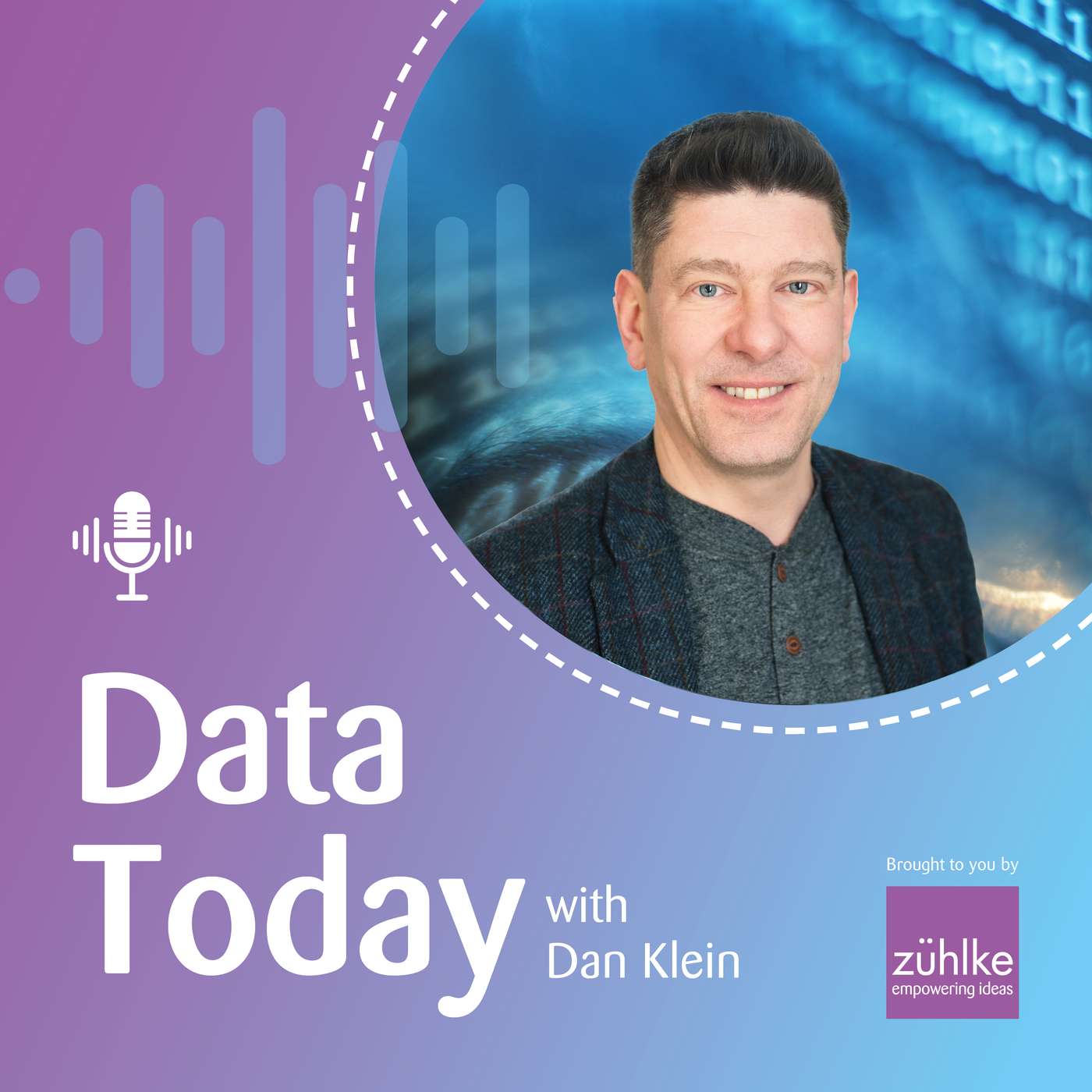
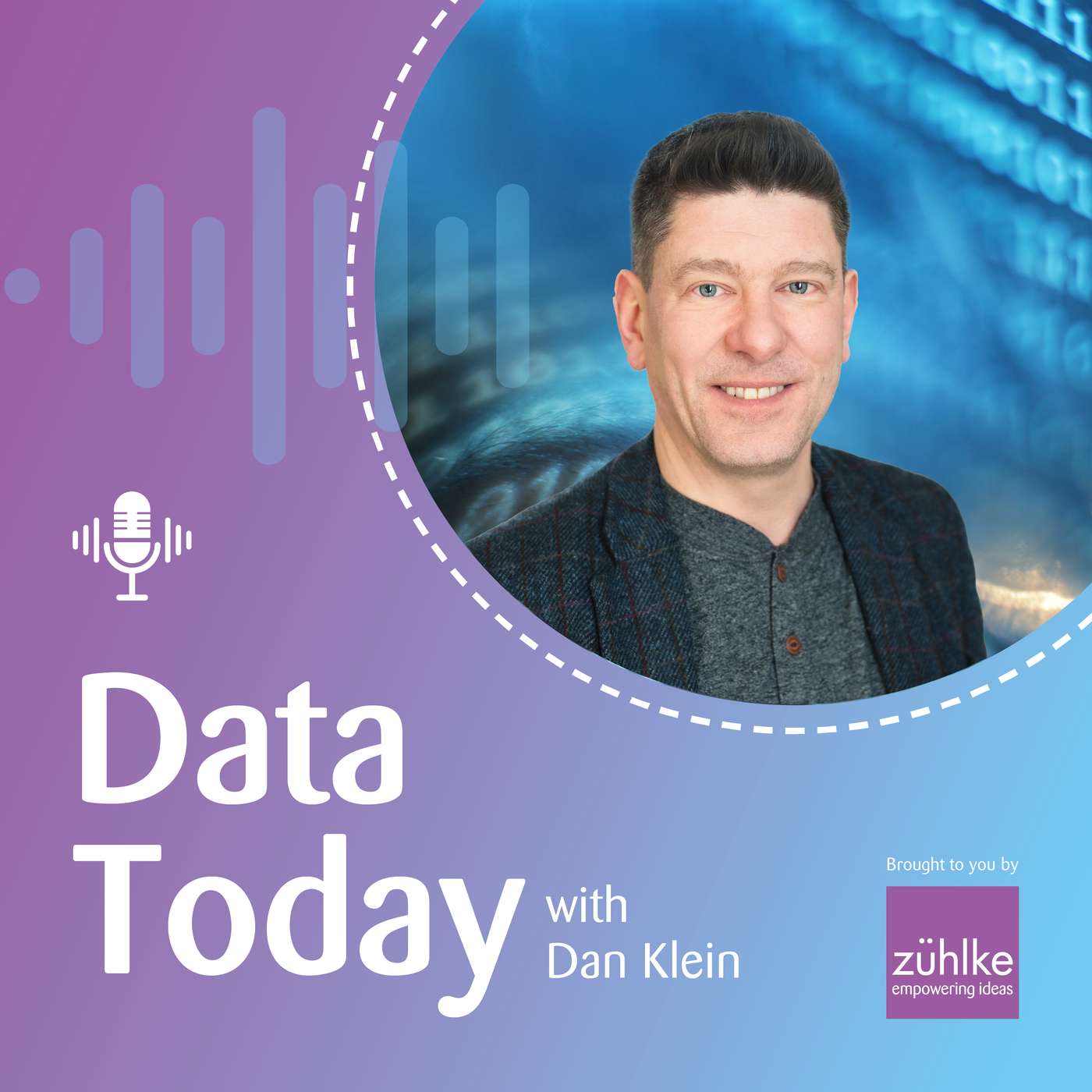
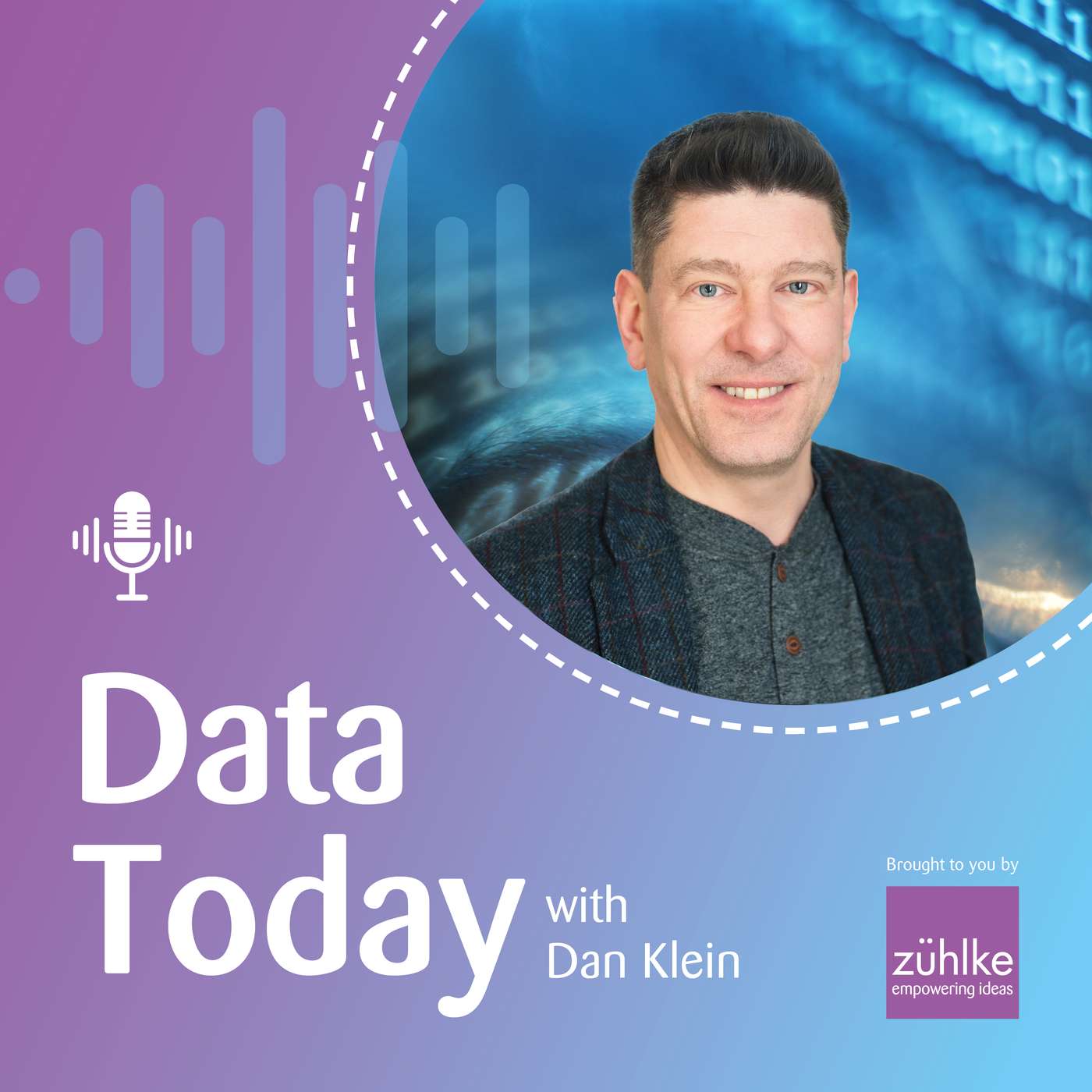
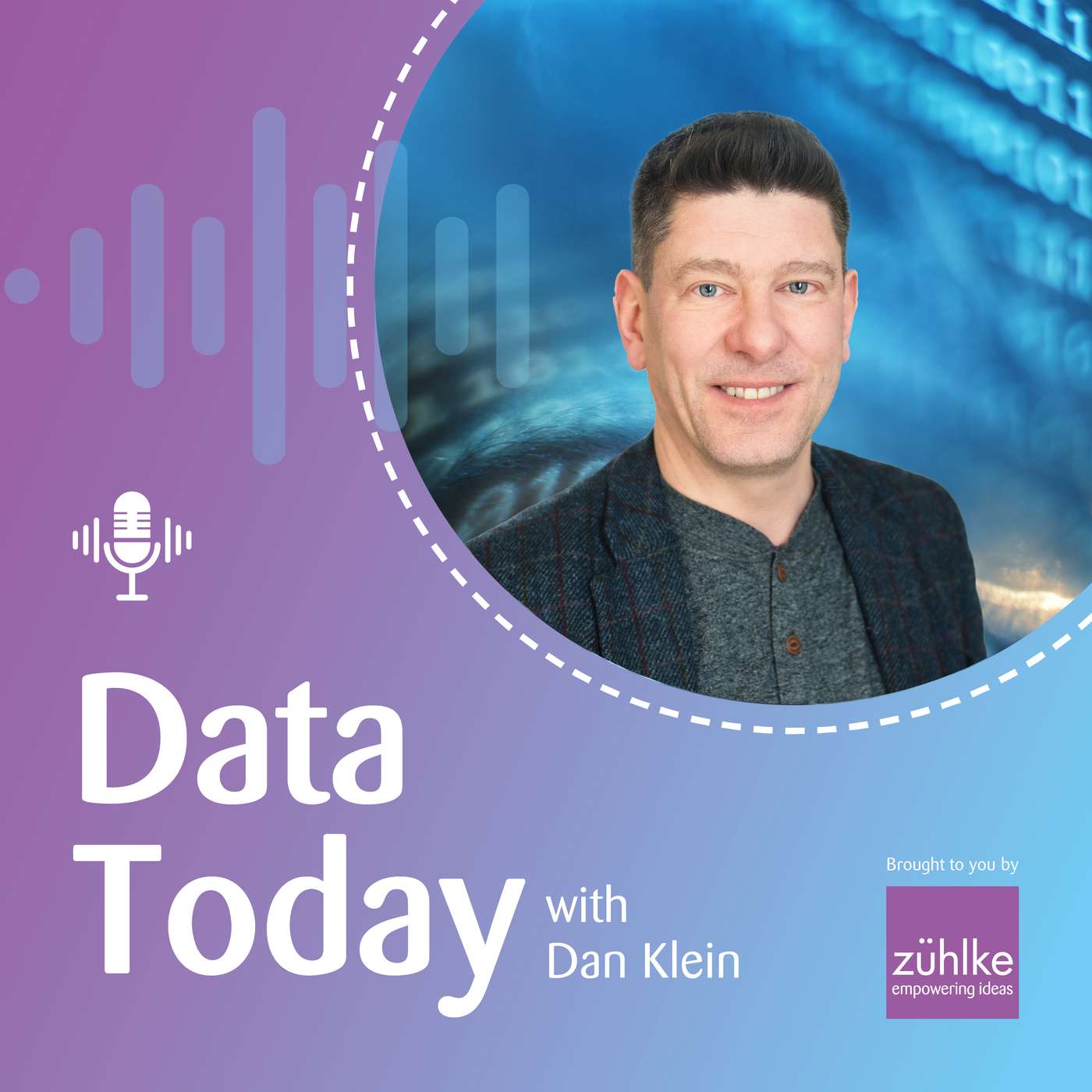
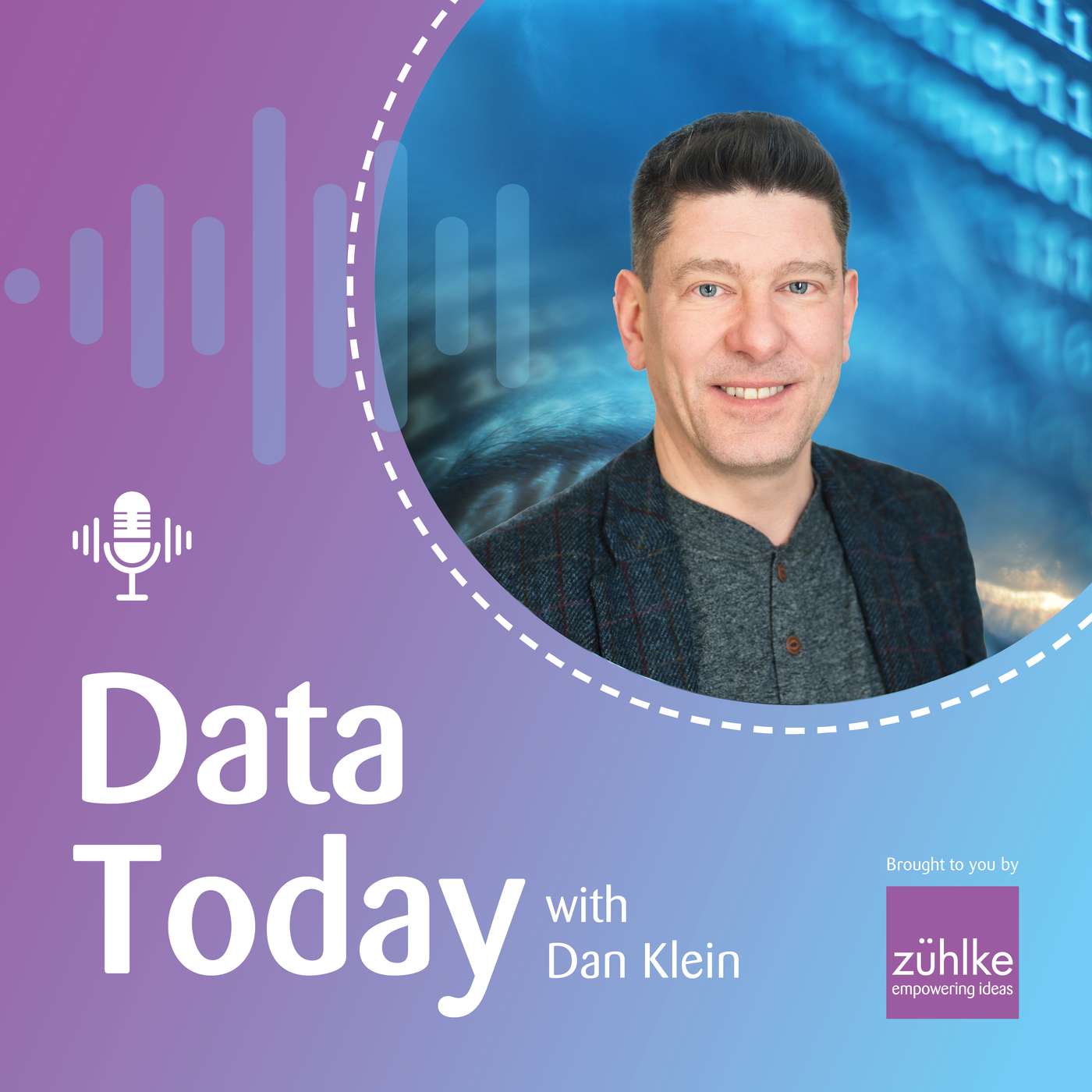
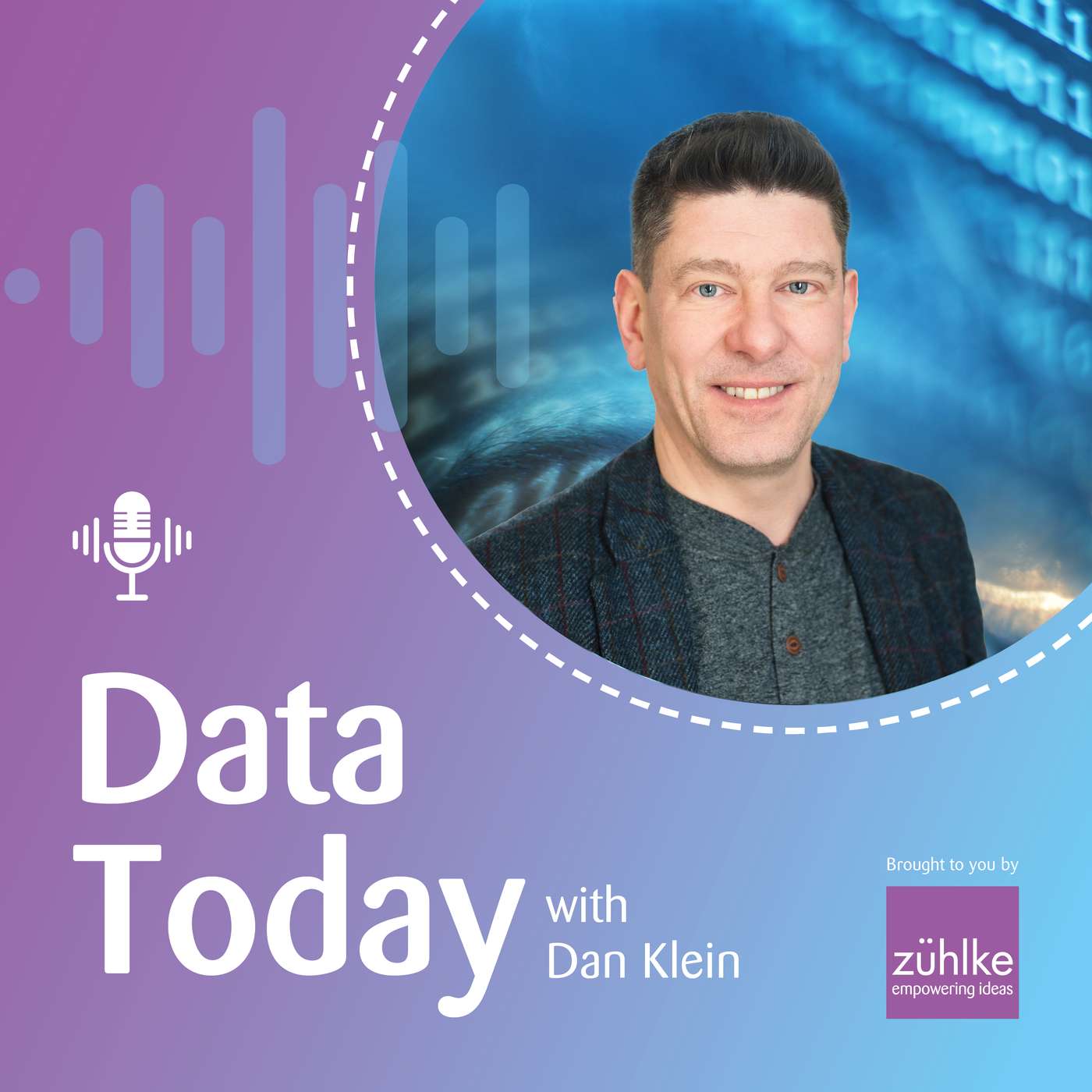
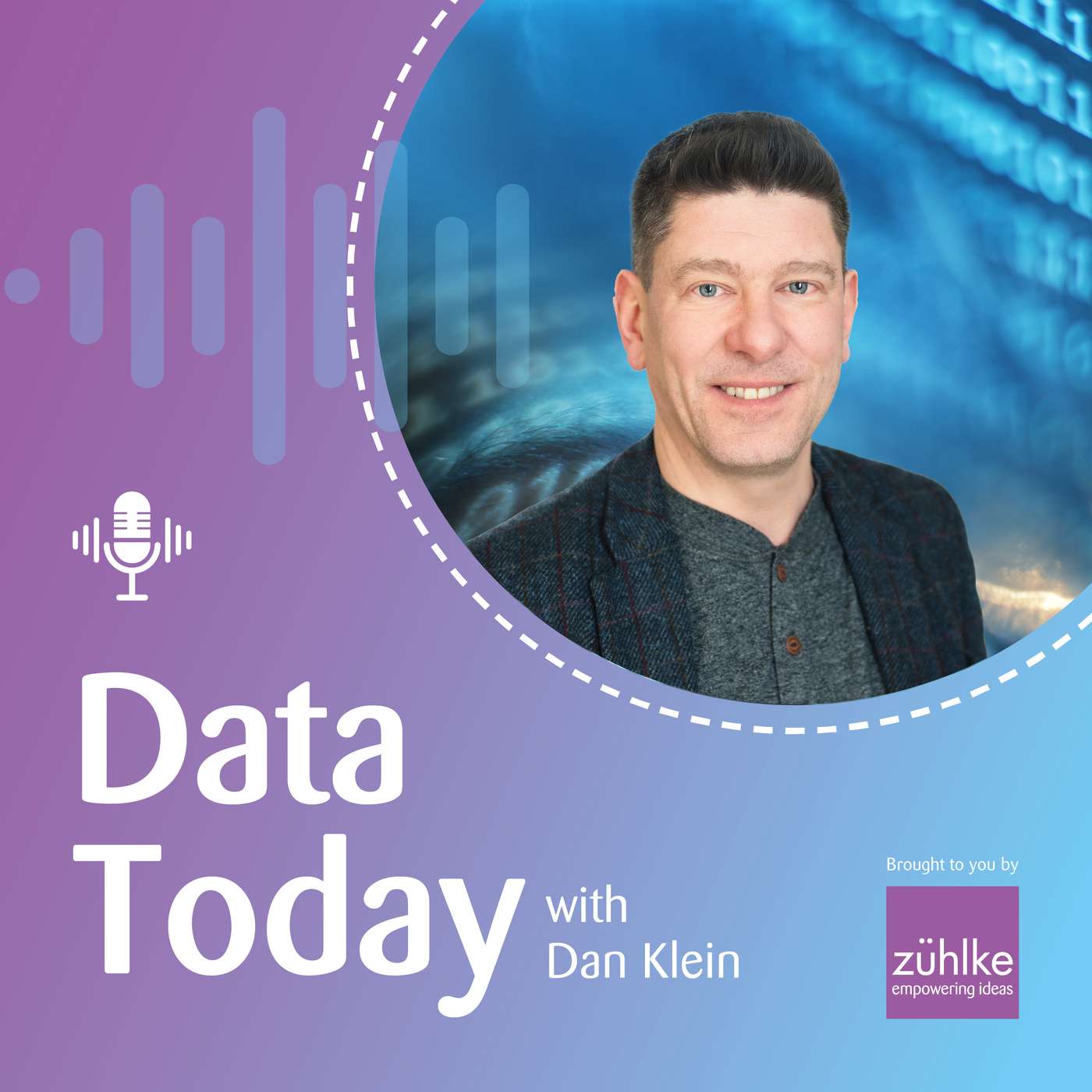
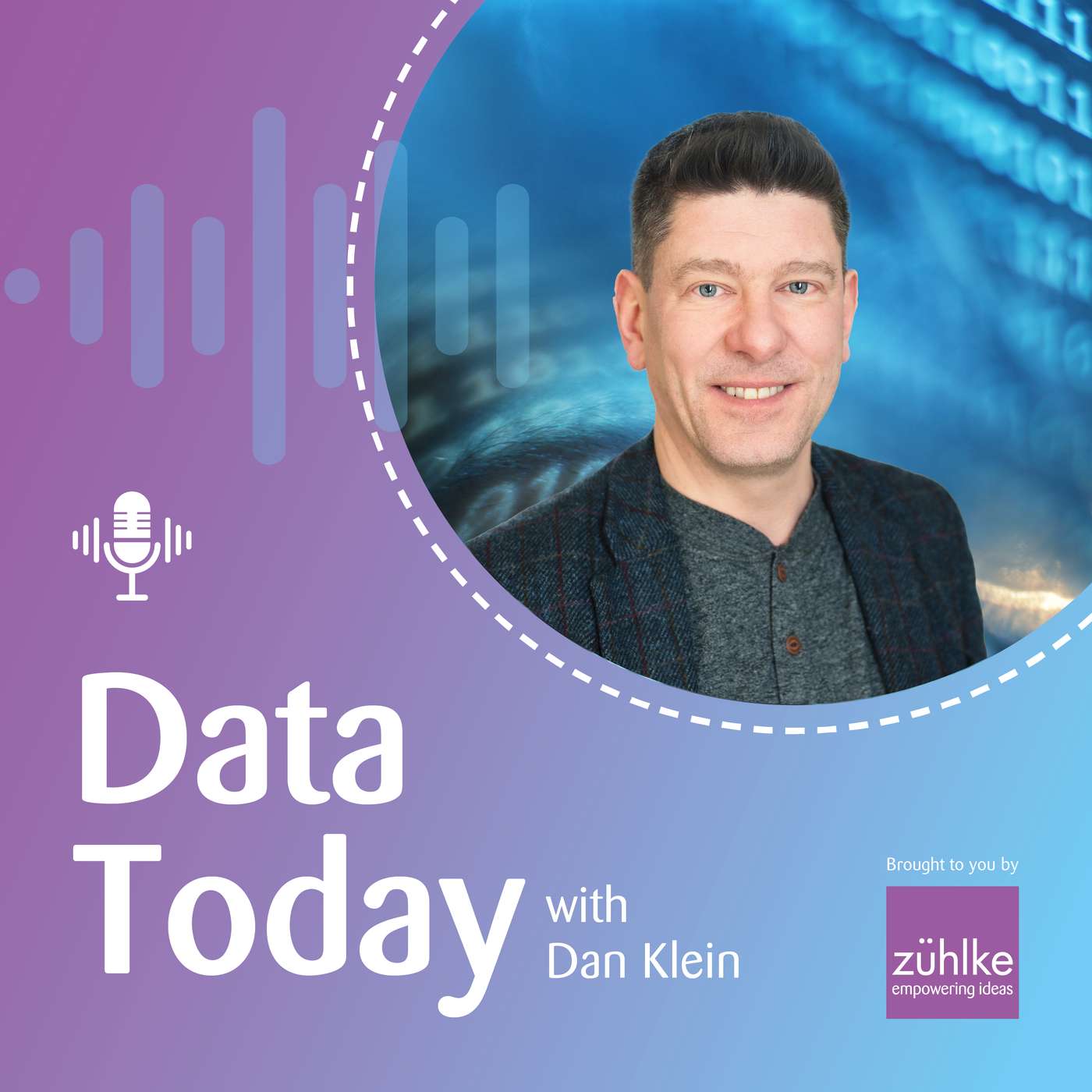
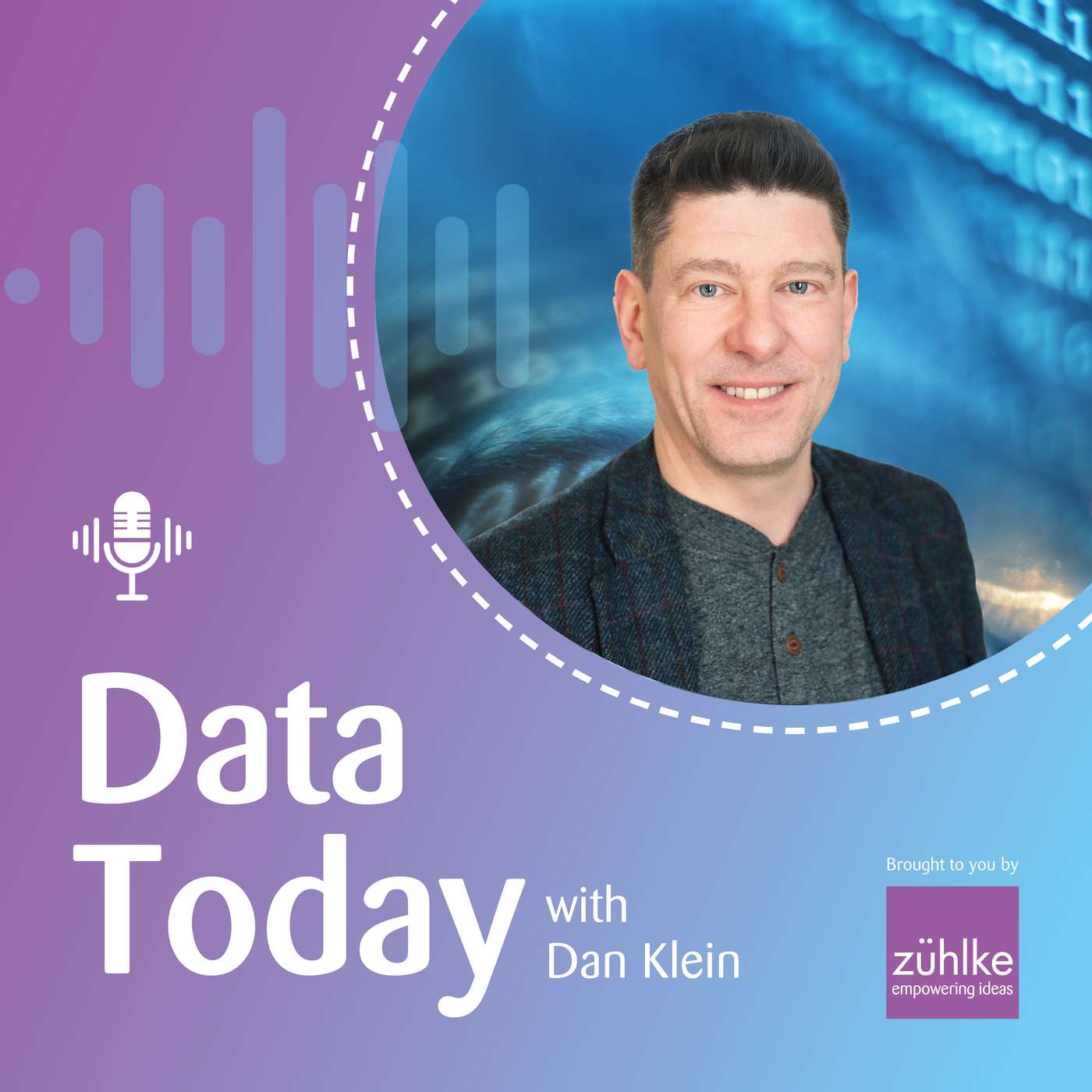
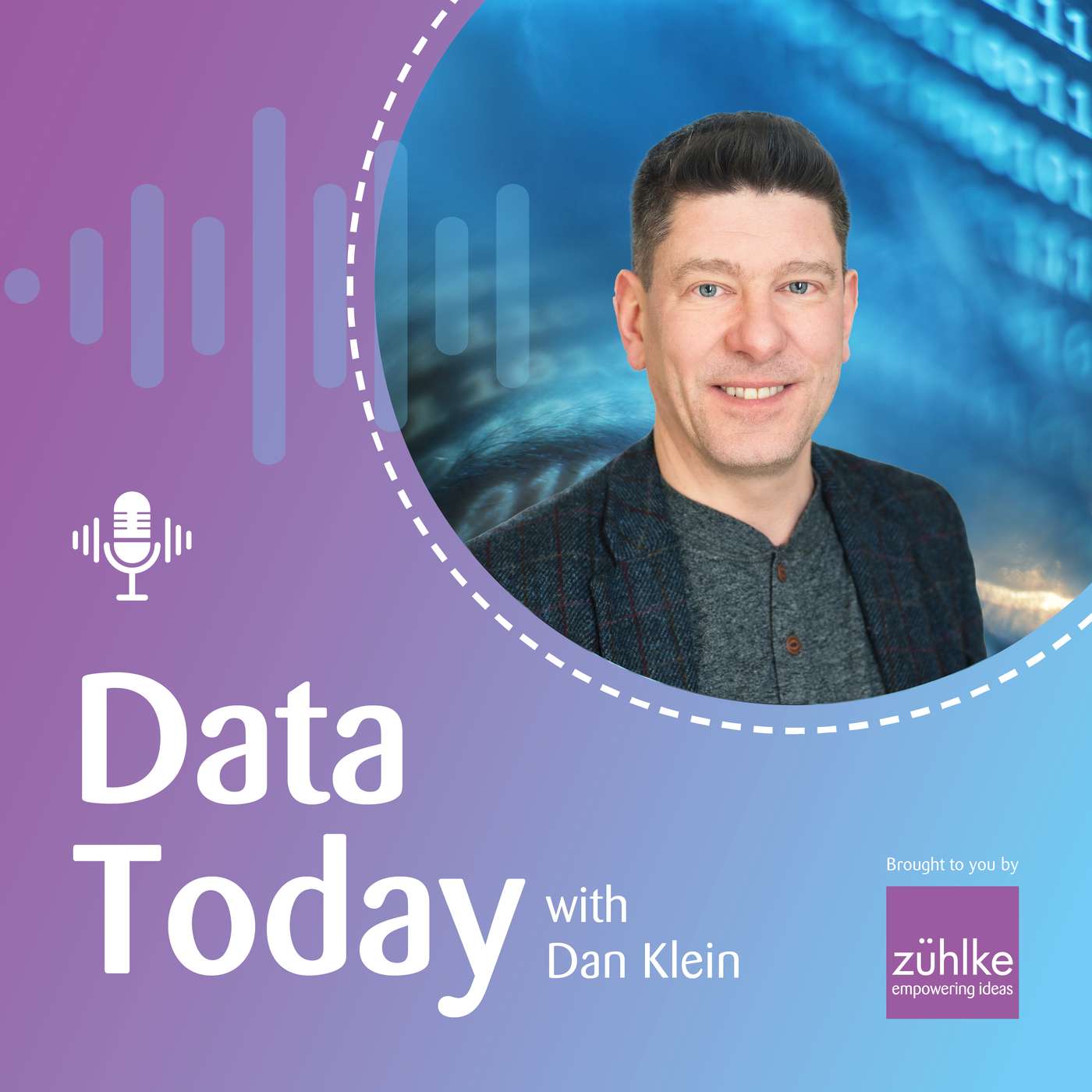
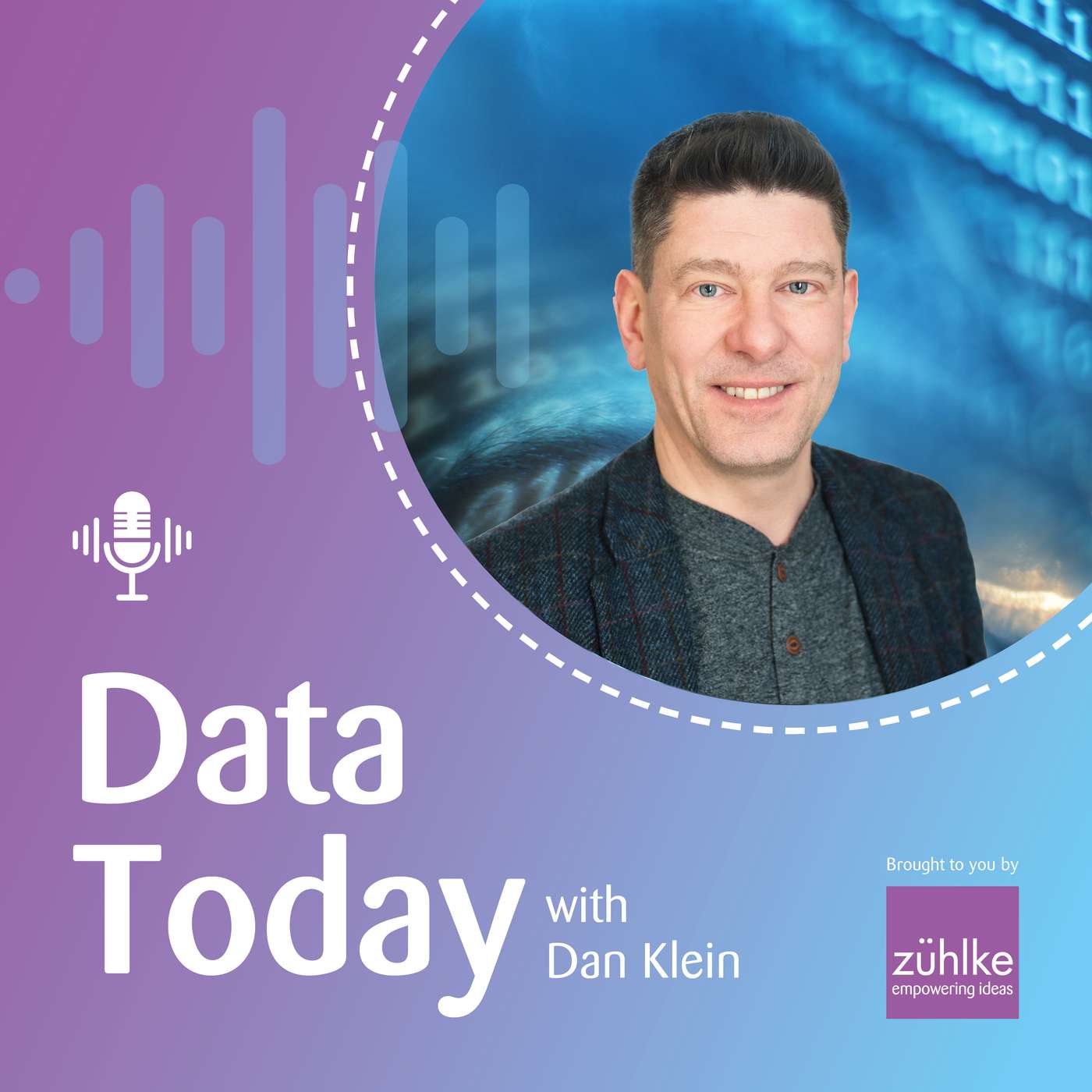
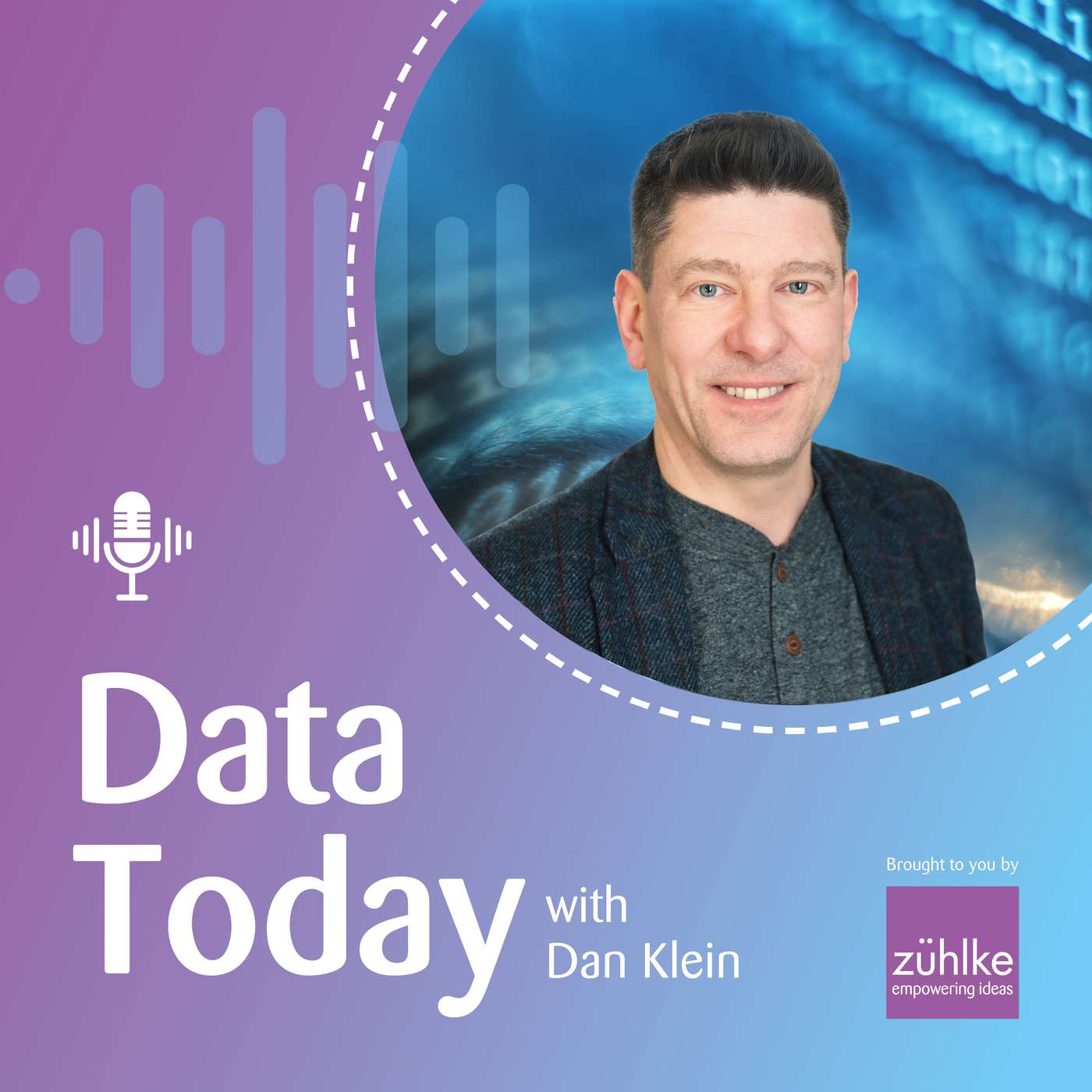



Buscador de Estatus El Becas Benito Juárez 2025 (Actualizado) te permite verificar fácilmente tu información ingresando tu CURP. Ahí sabrás si tu beca está activa, en proceso o si existen pagos pendientes por recibir.Esta herramienta ofrece datos actualizados en tiempo real, ayudándote a mantenerte informado sobre fechas, avisos y continuidad del programa [url=https://buscadorstatus.com/]Read more[/url].
MP Bhulekh Ekyc
[url=https://sewayojan-portal.com/]Sewayojan Login[/url] is a digital initiative launched by the Government of Uttar Pradesh to streamline the job application process for the state’s citizens. Accessible at sewayojan.up.nic.in, the portal allows candidates to register and log in to explore a wide range of government and private job opportunities. Through this platform, users can search for jobs based on their qualifications, view new vacancies as they are posted, and apply directly online. By providing a centralized and user-friendly interface, the Sewayojan Portal helps job seekers save time and effort while ensuring greater transparency and accessibility in the recruitment process.
[url=https://my-kasih.my/]MyKasih[/url] 2025 merupakan inisiatif bantuan kerajaan yang bertujuan membantu golongan berpendapatan rendah mendapatkan keperluan asas dengan lebih mudah dan teratur. Melalui program ini, penerima layak boleh membuat semakan status, memahami syarat kelayakan, serta mengetahui lokasi kedai terpilih untuk membuat pembelian barangan keperluan harian. Dengan proses yang lebih telus dan sistematik, MyKasih 2025 diharap dapat meringankan beban kewangan rakyat dan memastikan bantuan sampai kepada mereka yang benar-benar memerlukan.
MyKasih 2025 merupakan inisiatif bantuan kerajaan yang bertujuan membantu golongan berpendapatan rendah mendapatkan keperluan asas dengan lebih mudah dan teratur. Melalui program ini, penerima layak boleh membuat semakan status, memahami syarat kelayakan, serta mengetahui lokasi kedai terpilih untuk membuat pembelian barangan keperluan harian. Dengan proses yang lebih telus dan sistematik, MyKasih 2025 diharap dapat meringankan beban kewangan rakyat dan memastikan bantuan sampai kepada mereka yang benar-benar memerlukan.
IDME KPM ialah sistem digital utama yang dibangunkan oleh Kementerian Pendidikan Malaysia (KPM) bagi memudahkan pengurusan identiti pengguna serta pengesahan maklumat dalam sektor pendidikan. Platform ini bertindak sebagai pusat data bersepadu yang menghimpunkan kelayakan pengguna, sekali gus membolehkan guru, pelajar, ibu bapa, pentadbir dan institusi swasta mengakses pelbagai perkhidmatan pendidikan dengan lebih cepat, selamat dan teratur. Melalui IDME KPM, setiap urusan berkaitan pendidikan dapat dilakukan secara lebih efisien tanpa bergantung kepada proses manual yang memakan masa.
https://www.pinkgoa.in/baga-beach-escorts.html https://www.pinkgoa.in/ponda-escorts.html https://www.pinkgoa.in/vagator-escorts.html https://www.pinkgoa.in/sanvordem-escorts.html https://www.pinkgoa.in/bardez-escorts.html https://www.pinkgoa.in/palolem-beach-escorts.html https://www.pinkgoa.in/arpora-escorts.html https://www.pinkgoa.in/xeldem-escorts.html https://www.pinkgoa.in/canacona-escorts.html https://www.pinkgoa.in/varca-escorts.html https://www.pinkgoa.in/sanquelim-escorts.html https://www.pinkgoa.in/north-goa-escorts-service.html https://www.pinkgoa.in/bicholim-escorts.html
https://www.pinkgoa.in https://www.pinkgoa.in/mapusa-escorts.html https://www.pinkgoa.in/vasco-da-gama-escorts.html https://www.pinkgoa.in/anjuna-beach-escorts.html https://www.pinkgoa.in/arambol-beach-escorts.html https://www.pinkgoa.in/calangute-escorts.html https://www.pinkgoa.in/tiswadi-escorts.html https://www.pinkgoa.in/agonda-beach-escorts.html https://www.pinkgoa.in/margao-escorts.html https://www.pinkgoa.in/fatorpa-escorts.html https://www.pinkgoa.in/dudhsagar-waterfall-escorts.html https://www.pinkgoa.in/siolim-escorts.html https://www.pinkgoa.in/basilica-of-bom-beaches-escorts.html https://www.pinkgoa.in/colva-escorts.html https://www.pinkgoa.in/benaulim-escorts.html https://www.pinkgoa.in/valpoi-escorts.html https://www.pinkgoa.in/panjim-escorts.html
https://coloringpagesforkids.org/christmas-coloring-pages/ offers a wide variety of free printable coloring pages for kids, covering themes like animals, cartoons, seasonal holidays, nature, and occupations. Just as these pages provide a creative space for young minds to explore and learn, shows like Tech Tomorrow offer a space for adults to navigate the ever-evolving world of technology. By breaking down complex topics like AI, data, and sustainability, it helps listeners connect trends and gain clarity—turning curiosity into understanding, whether in play or in innovation.
Banglarbhumi is an online portal by the West Bengal government that provides land and property details like ownership, plot maps, and records. It makes land information easily accessible and transparent for citizens. Banglarbhumi is an online portal by the West Bengal government that provides land and property details like ownership, plot maps, and records. It makes land information easily accessible and transparent for citizens.
Daman Games is an online gaming platform that offers a variety of games for entertainment and earning rewards. Players can participate in prediction-based and skill games to win cash prizes. The platform is known for its simple interface, easy registration, and fast payout options. Daman Games is an online gaming platform that offers a variety of games for entertainment and earning rewards. Players can participate in prediction-based and skill games to win cash prizes. The platform is known for its simple interface, easy registration, and fast payout options.
IDME KPM is an online platform launched by the Ministry of Education Malaysia (Kementerian Pendidikan Malaysia) to simplify access to various educational services. It provides a single login system for teachers, students, parents, and administrators, allowing them to access multiple education-related applications in one place. Through IDME KPM, parents can register their children for school, check placement results, and submit required documents online. The platform ensures data security, reduces the need for multiple logins, and makes managing educational information easier and more efficient.
Tech Tomorrow, combined with the Doraemon X latest version download, introduces futuristic innovation — blending AI-driven tools, holographic interfaces, and smart gadgets. It transforms daily tasks into seamless, playful experiences inspired by Doraemon’s technology and tomorrow’s digital possibilities .https://doraemonnx.com/
[Visit CDA Academy](https://cda.academy) for digital marketing courses
I really enjoyed your podcast and I have shared this on my website https://yacenetv.com/ . I really think my audience should watch this.
A really good podacst, content is amazing https://unibee.dev/
This podcast sounds incredibly valuable for anyone interested in the latest tech trends! The format that tackles big questions is essential in today’s fast-paced world. By the way, speaking of innovation, have you tried Wordle Unlimited? It's a great way to exercise your brain while staying engaged with the digital sphere. Looking forward to more insightful discussions on Tech Tomorrow! https://wordleunlimitedfree.com/
This is amazing episodes, https://runt-por-placa.com.co/
Sounds like a must-listen for innovators! https://drivemad-2.io
Really enjoying Tech Tomorrow. The way you unpack AI, emerging tech, and big questions about the future makes me see familiar topics through a sharper lens. The episode “Is the global food crisis a problem that only tech can solve?” blew my mind — balance between innovation and humanity is key. I’ve also been writing about future tech and culture over at https://plotutv.com/ — would love to hear your thoughts if you ever stop by. Keep up the great work — I’m looking forward to what comes next.